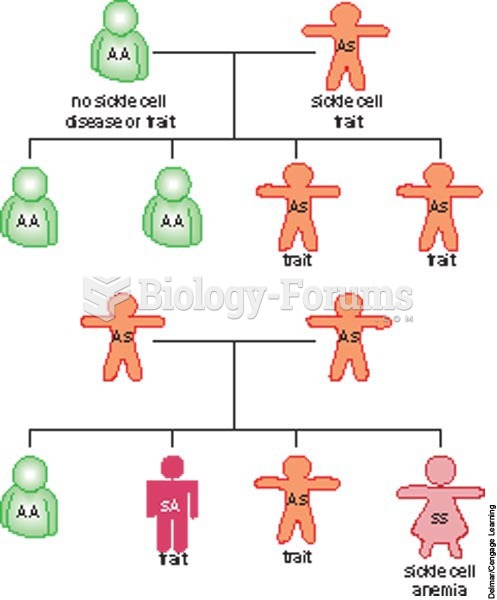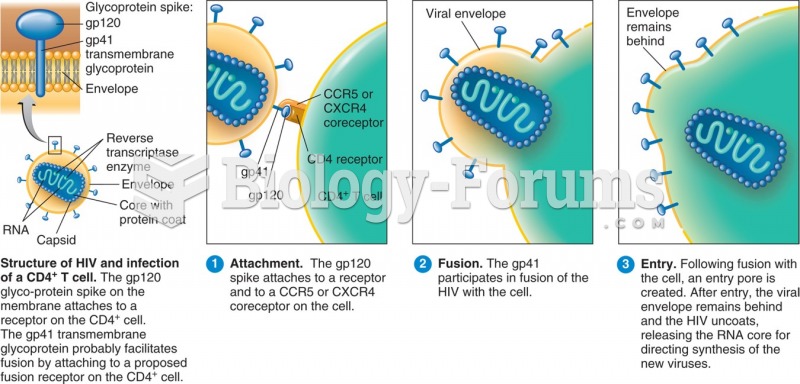|
|
|
About 100 new prescription or over-the-counter drugs come into the U.S. market every year.
In most cases, kidneys can recover from almost complete loss of function, such as in acute kidney (renal) failure.
Individuals are never “cured” of addictions. Instead, they learn how to manage their disease to lead healthy, balanced lives.
Drug abusers experience the following scenario: The pleasure given by their drug (or drugs) of choice is so strong that it is difficult to eradicate even after years of staying away from the substances involved. Certain triggers may cause a drug abuser to relapse. Research shows that long-term drug abuse results in significant changes in brain function that persist long after an individual stops using drugs. It is most important to realize that the same is true of not just illegal substances but alcohol and tobacco as well.
The heart is located in the center of the chest, with part of it tipped slightly so that it taps against the left side of the chest.







